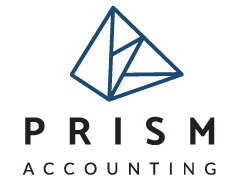If you are running a business of providing personal services, you may be a subject to special tax rules that affect how your income is taxed and what deductions you can claim. These rules are commonly referred to as PSI Rules.
These rules are designed to prevent individuals from getting any tax benefit from diverting their personal service income to other entities or individuals. Common examples include employing associates or conducting business through an entity, such as company or trust, for the purpose of distributing income to taxpayers in lower tax brackets.
What is Personal Service Income (PSI)?
Personal Service Income is income mainly received as a reward for your skills, labour, personal effort or expertise. The emphasis is on the word “mainly”, which is interpreted by the ATO as being more than 50%. That means, where more than 50% of the reward under a contract is paid for personal effort of an individual, all the income under this contract is classified as PSI. You have to assess each contract separately.
Income not classified as PSI include:
- Salary or wages received by employees
- Income mainly produced from use of machinery or equipment
- Income mainly produced by business structure (e.g. large professional practice with substantial assets, goodwill and number of employees)
- Income mainly from sale of goods (unless these goods are only a minor part of the services provided)
- Income mainly from granting a right to use property (e.g. royalties or copyright for intellectual property)
When PSI Rules apply and who is exempt
If your income is classified as Personal Service Income, it will be subject to PSI rules, unless your business is a Personal Service Business. You qualify as a Personal Service Business if you pass at least one of the following tests:
- Result Test,
- Unrelated Clients test,
- Employment Test
- Business Premises Test.
If personal service income is produced through a Personal Service Entity (PSE), and there is more than one individual generating personal services income, these four tests have to be applied to each individual. Only individuals can have PSI. It is possible to pass PSB tests in respect of one individual but not another.
Result Test
You pass the Result Test if for at least 75 percent of your personal service income you satisfy all of the following conditions:
- You are paid to produce a specific result under a contract, not just for your time. While it is common in certain industries to charge clients based on hours spent to complete the work, it is not about how you structure your prices. The question is whether the payment is dependent upon contract being fulfilled, whether in full or in stages. If you are paid on hourly basis, regardless of whether you produce certain outcome or not, it is unlikely you will pass the Result Test.
- You are required to provide your own tools and equipment to perform your service. You are taken to have satisfied this requirement if the type of work you do does not require any tools or equipment.
- You are liable for the costs of rectifying the defects. You must bear the entrepreneurial risks, including the risk of having to indemnify your clients for the losses they suffer as a result of provision of your services.
To pass the Result Test, all the above three conditions have to be satisfied.
80% Rule and the Remaining Tests
The remaining three tests can only be applied if less than 80 percent of your Personal Services Income during the income year come from one entity and their associates (80% Rule).
Unrelated Client Test
You meet the Unrelated Clients Test if during the year you produce income from providing your services to two or more clients who are not associates of each other, and these services were a direct result of making an offer to the public at large or a section of the public. You are not considered to be making an offer to the public if you are simply being available to provide services through a labour hire firm.
It should be noted that Australian government agencies are not treated as associates of each other for the purpose of 80% rule and Unrelated Clients Test.
Employment Test
You pass the Employment Test if you engage other entities or individuals to perform principal work. Principal work is the work that your client is paying you for, as opposed to support work, such as administration or bookkeeping. The entities or individuals you engage must produce at least 20 percent of your principal work by market value. They cannot be non-individual entities, such as companies or trusts, that are associates of yours. Employment Test can also be passed if you have one or more apprentices for at least half of the year.
Business Premises Test
You pass the Business Premises test if at all time during the year you use and maintain business premises. These premises must be:
- Used mainly for conducting activities from which your personal service is produced
- Exclusively used by you. If premises are shared or sublet to other parties, the test will not be passed.
- Physically separate from any premises that you or your associates use for private purposes (residence, holiday house, etc).
- Physically separate from any premises of your clients or their associates.
You need to maintain your business premises for the entire year, but they don’t have to be the same premises throughout the year.
Personal Service Business Determination
If you fail PSB Tests, you may still be exempt from PSI Rules for the income year if you have in place a valid Personal Service Business Determination issued by the Commissioner.
Any taxpayer can apply for a determination, but to grant it, the Commissioner must be satisfied that certain conditions of ITAA 1997 s 87-60 (for individuals) or s 87-65 (for entities) were met. For example, it may be appropriate to issue a determination where you satisfy either Unrelated Clients Test, or Business Premises Test or Employment Test but you fail the 80% rule because unusual circumstances prevented you from passing the test.
Consequences of being caught under PSI Rules
Deductions you can’t claim against PSI
If PSI rules apply to you, you will not be able to claim deductions against your Personal Services Income that would not be available to you if you were receiving that income as an employee.
Under General Deductions provisions in section 8-1(1) of ITAA 1997, you can deduct from your assessable income any loss or outgoing to the extent that:
(a) it is incurred in gaining or producing your assessable income; or
(b) it is necessarily incurred in carrying on a business for the purpose of gaining or producing your assessable income.
Thus, the scope of deductions available to business owners is wider as you only need to incur deduction for the purpose of gaining or producing your assessable income.
The effect of PSI Rules is that if the expense satisfied paragraph 8-1(1)(b) but not paragraph 8-1(1)(a), it will not be deductible (unless the exceptions apply).
Most common examples of such expenses include:
- Travelling expenses for regular trips between home and business premises of your client where you conduct your personal services;
- Interest paid on a loan taken out to pay Income Tax liability;
- Blackhole expenses
In addition, you can’t claim:
- Rent, mortgage interest, land tax, council rates for your residence or your associate’s residence to the extent you use it to produce your personal services income;
- Payments made to your associates for doing non-principal work, such as admin or bookkeeping;
- Superannuation contributions for your associates (see exceptions).
Deductions you can claim against PSI
You will still be eligible to claim expenses relating to
- Gaining work (advertising, tendering);
- Insuring against loss of your income or income earning capacity (Income Protection premiums);
- Indemnity or public liability insurance;
- Payments made to your associates for doing principal work;
- Compulsory Superannuation Guarantee payments for associates in respect of performing principal work;
- Payments to non-associate employee or contractors;
- Worker’s Compensation premiums and State Payroll tax;
- Entity maintenance deductions (ASIC registration, other statutory fees, bank account fees, tax compliance expenses).
In case of a Personal Service Entity, if there is more than one car used to produce personal service income by the same individual, for which there is private use, the entity can only claim expenses (including Fringe Benefit Tax) for one car. The entity must choose the car for which it will be claiming expenses, and the choice remains effective until the entity stops holding that car. There is no limitation for claiming expenses for cars used 100% for income producing purposes (as evidenced by Logbook).
Personal Services Entities are eligible to claim Superannuation Contributions for individuals whose personal service income is included in the entity’s income (test individuals). However, if an individual is an associate of the test individual and is performing less than 20% of the entity’s principal work by market value, the superannuation deduction will be limited to compulsory super guarantee amounts attributable to principal work.
Attribution of PSI
If PSI Rules apply to an individual who is generating personal services income through an entity, that personal services income is attributed back to the individual, and the individual will pay tax on that income, not the entity. Expenses relating to individual’s PSI are also attributed to the individual. If PSI deductions exceed PSI Income, the excess is deductible as a loss to the individual but not to the entity.
Prior to attribution, the PSI Income may be reduced by entity’s deductions if these deductions are not absorbed by other income produced by the entity. If PSI is attributed to more than one individual, entity’s deductions apply proportionally to each individual. Entity deductions cannot reduce an individual’s net PSI Income below NIL (cannot create PSI Loss).
PSI income will not be attributed to the individual if it is promptly paid as a salary by the 14th day after the payment period. If the income is attributed to the individual, the entity must comply with PAYG withholding obligations.
PSI and Anti-Avoidance
PSI Rules are not an exclusive piece of legislation and should not be viewed in isolation from other tax law. They were introduced as Part 2-42 of Income Tax Assessment Act 1997 in 2001 as a response to recommendations made in Ralph Report. Before PSI Regime was enacted, there were already some measures in place to address alienation of personal income in the form of case law, ATO Rulings and General Anti-Avoidance Provisions.
It is important to remember that these measures have much broader scope and may still apply even if taxpayer is exempt from application of PSI Rules. Specifically, these measures apply to professional practices (e.g. medical practices, accounting or legal firms) where income is produced mainly from provision of personal services by individual practitioner to prevent income splitting. See also: Tax Structures for Doctors – Should You Incorporate Your Medical Practice?
The General Anti-Avoidance provisions (in Part IVA) are triggered when a taxpayer enters into an arrangement for the dominant purpose of obtaining tax benefit. If Part IVA applies, the consequences can be quite severe. The Commissioner may cancel any tax benefit you receive, and penalty of up to 50% of the tax shortfall amount may also apply. The penalty may be reduced to 25% if you have a reasonably argued position.
Need to know more about PSI? Check out Personal Service Income (PSI): Frequently Asked Questions.
Watch the Video explaining the basics you need know about Personal Service Income (PSI).
Need Help?
If you need assistance with determining if PSI Rules or any other avoidance measures apply to you, we are able to help! We have extensive experience in assisting clients operating Service Based Businesses with their structuring, tax minimisation, compliance, and other matters.
Send us an enquiry or call our office for a confidential discussion.
Disclaimer: All the information provided on this website is of general nature and does not constitute tax, legal or financial advice. It does not take into account your personal circumstances and is not intended to replace consultation with a qualified professional.





